
Should vegetarians go vegan? | One Good India
Vegan vs Vegetarian
We Indians love milk and milk products more than anyone in the world. Don’t believe it? In 2018, Indians consumed 53% more dairy products than the global average! But it’s complex. While vegetarians in other countries are mostly motivated by eating healthier and are fewer in number, hundreds of millions of Indians are vegetarian for religious, cultural, ethical and socio economic reasons.
India boasts the largest share of vegetarians in the world. According to a recent survey, 24% of the Indian population is vegetarian, 9% is vegan and around 8% is pescetarian. Whilst India is not technically a “vegetarian nation,” it is certainly the most veg-friendly country in the world thanks to a deep-rooted emphasis on meatless diets.
This is why it's helpful to think about our dietary habits on a spectrum. Some people restrict their consumption of meat, some avoid it on festivals, and others give it up for parts of the year.
Maybe you fall somewhere on this spectrum and you’re wondering: what difference does it make to go vegan? In this blog, we’ll explain not just why, but how it makes a difference.
Is a vegetarian diet healthy?
Lactose, the main sugar in cow’s milk, can only be broken down by an enzyme called lactase. Most mammals stop producing lactase after weaning, including us humans. It’s our body’s way of saying: it’s time to be an adult!
A lot of people suffer from lactose intolerance, and many people don’t even know it. Between 60 and 65 percent of Indians are lactose intolerant. That’s not so shocking when you realize milk is a fluid containing many different hormones and bioactive compounds (not as appetizing as clean, plant-based mylk if you ask us!)
And symptoms can range from mild to severe. They include, but aren’t limited to:
-
Acne
-
Rashes
-
Bloating
-
Cramping
-
Gas
-
Vomiting
If you’ve ever experienced this within 30 minutes of consuming dairy, your body is simply having a natural reaction to eating something…unnatural.
And there’s more weird things it does to our bodies. When we consume the whey and casein found naturally in milk, it can encourage our bodies to make the growth hormone IGF-1.
Consuming dairy can increase the levels of this growth hormone past childhood, potentially increasing our risk for various cancers throughout adulthood.
The easiest way to avoid potential health risks and discomfort is by consuming plant-based milk. Vegetarians often feel better when they make the switch, and that says a lot about how suitable milk is for us biologically.
Is a vegetarian diet good for public health?
Vegetarians normally resort to more dairy products as a substitute for meat, especially in India. Paneer often replaces chicken and milk often replaces animal protein.
It feels like a personal choice for many people, but in reality it impacts the health and safety of our country.
While livestock significantly supports rural livelihoods, the diseases of cattle represent a major threat to public health. Udder infections, indigestion, and infertility force farmers to treat animals with antibiotics and hormones.
But with little to no control over how much is being administered and how much ends up in milk, India has developed some of the highest levels of bacteria resistance in the world.
What does that mean? Over time, harmful microbes will stop responding to medicines designed to treat infections. This can increase healthcare costs, hospital stays, spread of infections, and individual medical costs for the general population.
Are animals killed for dairy?
A lot of us go vegetarian because we believe killing animals for food is unethical or cruel. But did you know that meat production hugely benefits from dairy production? We’ll explain.
Milk can only come from a cow or buffalo who has given birth to a calf. If the calf is born a male, he will either be sent for slaughter, become abandoned, become used for breeding, or become used for work. Regardless of where he is taken, he will eventually be slaughtered for meat. If the calf is born a female, she will be kept alive like her mother for milk production. But once her milk production peaks, she will be slaughtered for meat. Dairy and meat industries are ancillary like pencils and erasers. They need each other!
However, there isn’t a strong market for beef in India so it gets exported. In fact, India is one of the largest exporters of beef in the world. At the same time, India is one of the largest consumers of dairy in the world. See the connection?
And the demand for dairy is growing. Unlike most countries, India’s increasing disposable income translates to higher dairy consumption, as opposed to a higher meat consumption. So really, consuming dairy isn’t stopping the slaughter of animals- it’s increasing it.
Is a vegetarian diet good for the environment?
As discussed earlier, the meat and dairy output in India is big. It shouldn’t be a surprise that we are also home to the largest livestock population in the world at a whopping 500 million heads. Think about that for a moment- that’s over one third of India’s human population!
Like humans, animals also have an impact on the environment. A study by the Indian Institute of Technology Delhi and the Deenbandhu Chhotu Ram University of Science and Technology found that livestock emitted 15.3 million tonnes of methane in 2012. Just for reference, methane is a greenhouse gas 20 times more potent than carbon dioxide.
The study also found that the Indian livestock population alone is big enough to raise the earth’s temperature by 0.69 millikelvin. Over the next 20 years, that number represents 14 percent of the total increase in global temperatures. Yikes!
In addition, the skyrocketing demand for milk and milk products will challenge our freshwater supply. Untreated livestock waste is a big problem because a lot of it ends up polluting our diminishing groundwater and waterways. With many regions experiencing water distress, a vegan diet can help increase the availability and quality of our fresh water.
Yes, you make a difference
The scale of meat and dairy is massive, despite a large vegetarian population. So yes! Going vegan and replacing dairy with plant-based dairy makes a difference, and a big one at that. Imagine how different this blog post would read if vegans were 39% of the Indian population. Would we even need to write this? Thankfully you don’t have to imagine life without curd, paneer, milk, and honouring tradition.
Dairy-free mylk, paneer, curd, butter, ranch, and mayo is here, and your vegan journey awaits!

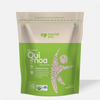
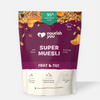
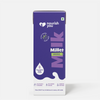
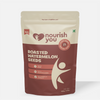
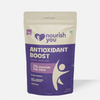
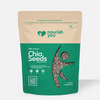
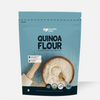
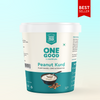
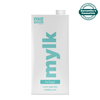



Leave a comment